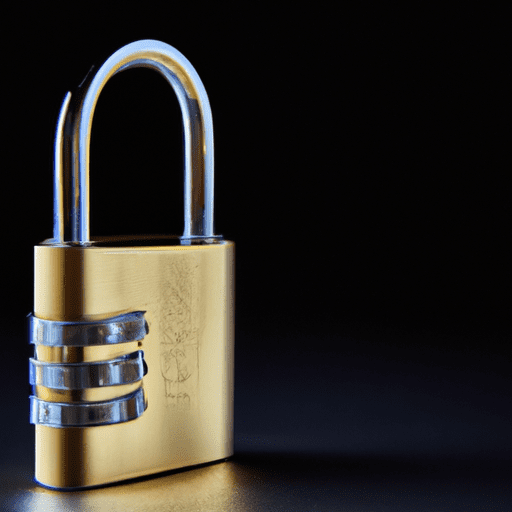Looking to secure a loan but worried about your credit history? Look no further! In this article, we will guide you through the process of getting a loan with no credit check. Whether you have a limited credit history, a poor credit score, or no credit at all, we have got you covered. Discover the secrets and tips that will help you obtain the loan you need without the hassle of a credit check. Say goodbye to those sleepless nights and let us show you how to get the financial assistance you deserve.
Pros and Cons of Getting a Loan with No Credit Check
When it comes to securing a loan, having no credit check might seem appealing at first. However, it's important to weigh the advantages and disadvantages before making a decision.
Advantages of Getting a Loan with No Credit Check
One of the biggest advantages of getting a loan with no credit check is that it allows individuals with no credit history or a poor credit score to access the funds they need. Traditional lenders often rely heavily on credit scores to determine loan eligibility, leaving those without established credit struggling to find financial options. With a no credit check loan, this barrier is eliminated, making it a viable choice for individuals in such situations.
Another advantage is the quick approval process. Since there is no need for a credit check, lenders can expedite the loan application process, providing borrowers with access to funds in a shorter amount of time. This can be particularly helpful in emergency situations when immediate financial assistance is required.
Disadvantages of Getting a Loan with No Credit Check
While there are benefits to getting a loan with no credit check, it's important to also consider the downsides. One significant disadvantage is the high interest rates associated with these types of loans. Lenders often charge higher rates as a way to mitigate the risk they assume by not assessing creditworthiness. As a result, borrowers end up paying more over time.
There is also the potential for encountering predatory lending practices. Some lenders may take advantage of individuals desperate for funds and offer loans with hidden fees or unfair terms. It's crucial for borrowers to be vigilant and thoroughly research lenders to ensure they are reputable and trustworthy.
Lastly, there is the potential for falling into a debt cycle. Without a credit check, borrowers may be tempted to take on more debt than they can afford to repay. This can create a cycle of borrowing and accumulating high-interest debt, making it difficult to eventually escape the cycle and improve one's financial situation.
Alternative Options for Borrowers with No Credit Check
If getting a loan with no credit check is not the ideal route, there are several alternative options available for borrowers.
Secured Loans
Secured loans are a popular choice for individuals without credit history. These loans require collateral, such as a car or property, which serves as security for the lender. By offering collateral, borrowers lower the risk for lenders, increasing their chances of loan approval. Additionally, secured loans typically offer lower interest rates compared to no credit check loans.
Cosigner Loans
Another alternative is applying for a loan with a cosigner. A cosigner is someone with a good credit score who agrees to take responsibility for the loan if the borrower defaults. This provides assurance to lenders and increases the likelihood of approval. With a cosigner loan, borrowers may also benefit from more favorable loan terms and lower interest rates.
Payday Loans
Payday loans are short-term loans typically offered in small amounts. These loans are designed to cover immediate expenses and are usually repaid on the borrower's next payday. Payday loans often require no credit check, making them accessible to individuals with no credit history. However, they come with high interest rates and should only be used as a last resort due to the potential for trapping borrowers in a cycle of debt.
Peer-to-Peer Loans
Peer-to-peer lending platforms connect borrowers directly with individual investors. These loans often have more lenient requirements and don't necessarily require a credit check. The interest rates and terms of peer-to-peer loans vary depending on the borrower's creditworthiness and the investor's preferences. Peer-to-peer lending can be a viable alternative for those seeking loans without a credit check.
Finding Lenders who Offer No Credit Check Loans
If a no credit check loan is the preferred choice, finding lenders who offer such loans is the next step. Here are some avenues to explore:
Online Search
One of the most convenient ways to find lenders who offer no credit check loans is through an online search. Simply input relevant keywords into a search engine, and numerous lenders specializing in these types of loans will appear. It's crucial to research the reputation of each lender to ensure they are legitimate and reputable. Reading customer reviews and checking for certifications and accreditations can help in making an informed decision.
Credit Unions
Credit unions are member-owned financial institutions that are often more flexible in their lending criteria compared to traditional banks. Some credit unions offer loans without conducting credit checks, making them an excellent option for individuals with no credit history. Contact local credit unions and inquire about their loan programs to determine if they offer no credit check loans.
Direct Lenders
Direct lenders are financial institutions or private companies that offer loans directly to borrowers without intermediaries. Many direct lenders specialize in providing loans to individuals with no credit check. Research and compare different direct lenders to find the one that offers the best terms, interest rates, and repayment options.
Loan Matching Services
Loan matching services are platforms that connect borrowers with potential lenders. These services simplify the process by allowing borrowers to submit one application, which is then matched with various potential lenders who offer no credit check loans. It helps save time and effort in finding the most suitable loan options. However, it is crucial to research loan matching services to ensure they have a good track record and prioritize borrower's interests.
Documents and Requirements for No Credit Check Loans
While no credit check loans may not require extensive credit checks, there are still documents and requirements that borrowers need to fulfill. These typically include:
Proof of Identity
Lenders will require borrowers to provide proof of identification, such as a valid driver's license, passport, or state ID. This ensures that the borrower is who they claim to be and helps prevent identity theft.
Proof of Income
Borrowers will need to provide proof of income to demonstrate their ability to repay the loan. This can be in the form of pay stubs, bank statements showing regular deposits, or tax returns for self-employed individuals.
Bank Statements
Lenders may request bank statements to verify a borrower's financial stability and track their spending habits. Bank statements give lenders insight into a borrower's income, expenses, and overall financial health.
Collateral if Applicable
If applying for a secured loan, borrowers will need to provide documentation of the collateral offered. This can include property deeds, car titles, or other legal documents proving ownership of the collateral.
It's important for borrowers to gather all necessary documents and ensure they are accurate and up to date before applying for a no credit check loan.
Applying for a No Credit Check Loan
Once all the necessary documents are gathered, it's time to apply for a no credit check loan. Here are the steps to follow:
Gather Necessary Documents
Before starting the application process, ensure that all required documents are organized and ready. Having everything prepared beforehand helps streamline the application process and prevents any delays.
Fill Out Application Form
Fill out the loan application form accurately and provide all the necessary information. Be prepared to answer questions about personal details, income, employment, and the amount of the loan being requested. Double-check the form for any errors or missing information before submitting it.
Submit Application
Submit the completed application form along with any supporting documents through the chosen lender's preferred method. This could be via an online application portal, email, or in-person at a physical location. Follow the lender's instructions to ensure the application is received and processed promptly.
Wait for Approval
After submitting the application, patiently wait for the lender to review the information and make a decision. The approval process timeline varies depending on the lender, but it's important to resist the temptation to submit multiple applications simultaneously, as it can negatively impact credit scores.
Once approved, carefully review the loan terms and conditions before agreeing to proceed.
Evaluating Loan Terms and Conditions
Before finalizing any loan agreement, it's crucial to evaluate the terms and conditions thoroughly. Pay attention to the following factors:
Interest Rates and Fees
Review the interest rates and any associated fees such as origination fees, late payment fees, or early repayment penalties. Compare these costs with other lenders to ensure they are fair and transparent.
Loan Repayment Period
Consider the repayment period for the loan. Shorter repayment periods may mean higher monthly installments, while longer repayment periods can lead to lower monthly payments but higher overall interest costs. Choose a repayment period that aligns with your financial capabilities and goals.
Repayment Flexibility
Evaluate the flexibility of the repayment terms. Some lenders allow borrowers to adjust their repayment schedule or offer alternative repayment options during financial hardship. Having flexibility can be beneficial, especially in unpredictable circumstances.
Late Payment Penalties
Check for any penalties associated with late payments. Understand the consequences of late payments, including additional fees and the impact on credit scores. Clear knowledge of these penalties can help borrowers avoid unnecessary financial burdens.
Understanding the Risks of No Credit Check Loans
While no credit check loans provide a lifeline for individuals with limited or no credit history, it's important to understand the risks involved:
High Interest Rates
Due to the higher risk involved for lenders, no credit check loans often come with elevated interest rates. Borrowers must be prepared for the increased costs associated with these loans, as they can significantly impact the overall repayment amount.
Predatory Lending Practices
Unfortunately, some lenders take advantage of vulnerable borrowers seeking no credit check loans. It's important to be cautious of lenders who employ predatory lending practices, such as charging excessive fees or imposing unfair loan terms. Thoroughly research lenders and read customer reviews before making a decision.
Potential for Debt Cycle
Without proper financial management, borrowers may find themselves trapped in a debt cycle. Relying on no credit check loans regularly can lead to borrowing more than one's income can sustain, resulting in a perpetual cycle of debt. It's crucial to borrow responsibly and explore other financial options to avoid such situations.
Building Credit with No Credit Check Loans
While no credit check loans don't directly impact credit scores, borrowers can still use these loans as an opportunity to build or improve their credit history. Here are a few steps to consider:
Make Timely Payments
Making consistent and timely payments on a no credit check loan can help establish a positive payment history. This can contribute to a better credit score over time and increase the chances of being approved for future loans or credit cards that do require a credit check.
Credit Builder Loans
Consider credit builder loans specifically designed to help build credit. These loans are typically small, short-term loans that report payment information to credit bureaus. Regular, timely payments can demonstrate responsible financial behavior and result in an improved credit score.
Alternatives to No Credit Check Loans
If the risks and high interest rates associated with no credit check loans are of concern, consider these alternatives:
Secured Credit Cards
Secured credit cards require a cash deposit as collateral, allowing individuals to build credit by making regular payments. With responsible use, secured credit cards can help establish credit history and eventually qualify for unsecured credit cards with better terms.
Credit Builder Loans
Credit builder loans, as mentioned earlier, are an excellent alternative to no credit check loans. These loans are specifically designed to help individuals build credit. By making timely payments, borrowers can demonstrate creditworthiness and gradually improve their credit scores.
Cosigner Loans
If a borrower has the option of involving a willing and qualified cosigner, applying for a cosigner loan can increase the chances of approval. A cosigner with a good credit history can provide assurance to lenders and potentially secure more favorable loan terms.
Securing a Secured Loan
Instead of opting for a no credit check loan, consider securing a loan with collateral. By offering an asset, such as a car or property, as collateral, borrowers reduce the lender's risk, leading to more affordable interest rates and better loan terms.
Improving Credit Score for Future Borrowing
For individuals interested in improving their credit score for future borrowing needs, here are some important factors to consider:
Pay Bills on Time
Paying bills on time is one of the most significant contributors to a good credit score. Ensure all bills, including credit card payments, loan installments, and utility bills, are paid by their due dates to establish a positive payment history.
Keep Credit Utilization Low
Maintain a low credit utilization ratio by keeping credit card balances below the available credit limit. High credit utilization can negatively impact credit scores. Aim to use no more than 30% of available credit to maintain a healthy ratio.
Maintain a Mix of Credit
Having a diverse mix of credit accounts, such as credit cards, loans, and mortgages, can demonstrate responsible credit management. However, avoid opening too many accounts simultaneously, as it can negatively impact credit scores.
Correct Errors on Credit Report
Regularly review credit reports for any errors or discrepancies. Incorrect information on credit reports can hinder credit scores. If any inaccuracies are found, contact the credit bureau to initiate the correction process.
By implementing these strategies, individuals can gradually improve their credit score, making it easier to qualify for loans and secure better loan terms in the future.
In conclusion, while getting a loan with no credit check can be advantageous for individuals with no credit history or poor credit scores, it's essential to carefully weigh the pros and cons. Considering alternative options, understanding the risks, and taking steps to build credit can help individuals make informed decisions and improve their financial standing for future borrowing needs.





